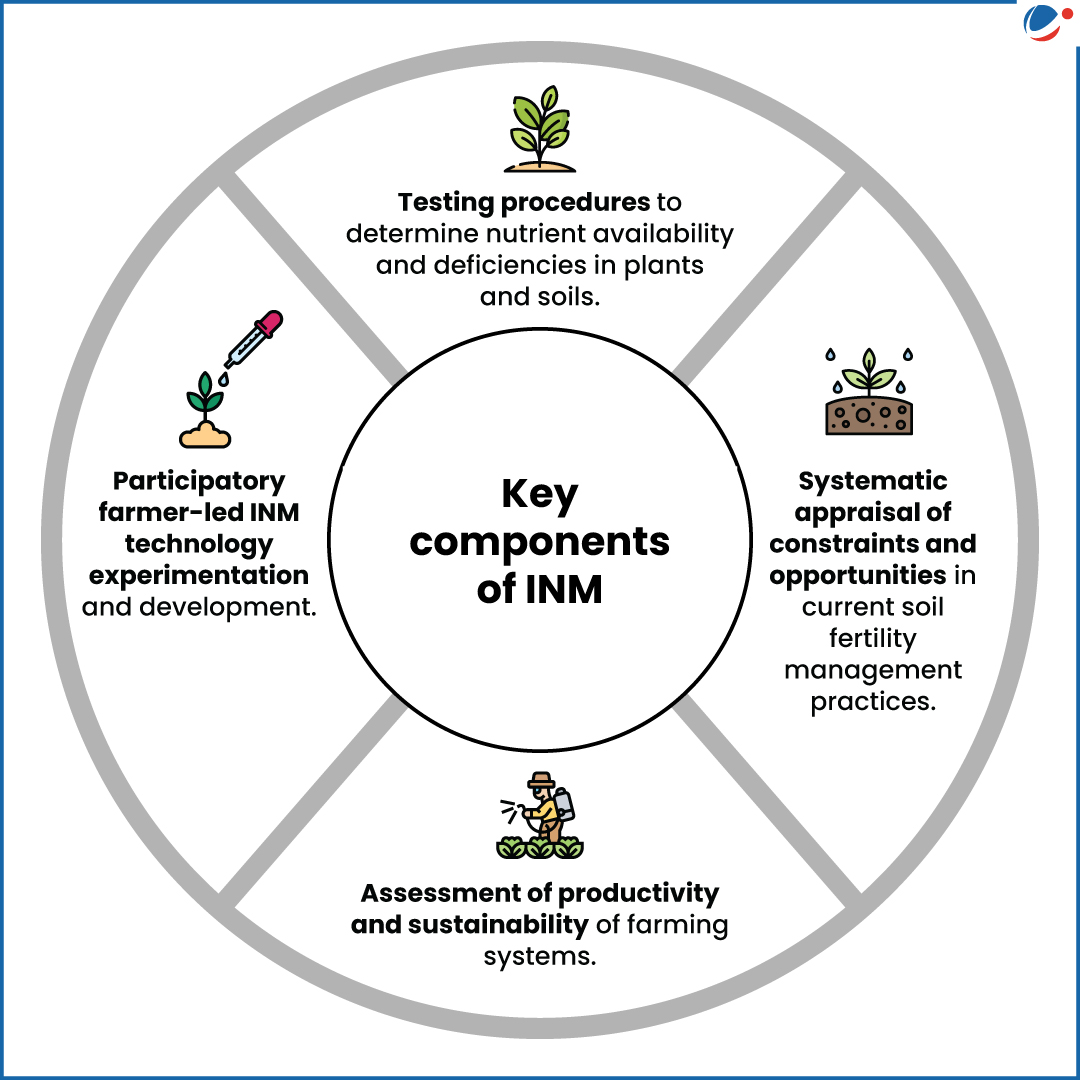Union Government recently informed Parliament that Long term fertilizer experiment conducted by Indian Council of Agriculture Research revealed that Integrated Nutrient Management (INM) practices maintained soil fertility status.

About INM
- It refers to maintenance of soil fertility and plant nutrient supply at an optimum level for sustaining desired productivity through optimization of benefits from all possible sources of organic, inorganic, and biological components in an integrated manner.
- Rather than focusing nutrition management practices on one crop, INM aims at optimal use of nutrient sources on a cropping-system or crop-rotation basis.
Significance of INM
- Enhanced soil fertility and health: By increasing soil organic matter which improves nutrient retention, soil structure, and water-holding capacity.
- Sustainable crop production: Reduces pollution from excessive fertilizer use, synchronizes the nutrient demand of the crop with nutrient supply from native and applied sources, etc.
- Others: Cost-effective by optimizing resource-use, food security, etc.
Challenges with INM
Complex decision-making process, inadequate technical knowledge and training, etc.
Government initiatives to promote INM and Organic farming
- Paramparagat Krishi Vikas Yojana (PKVY)
- Mission Organic Value Chain Development in North East Region (MOVCDNER)
- Market Development Assistance (MDA) to promote organic fertilizers
- PM-PRANAM to promote sustainable and balanced use of fertilizers, etc.




